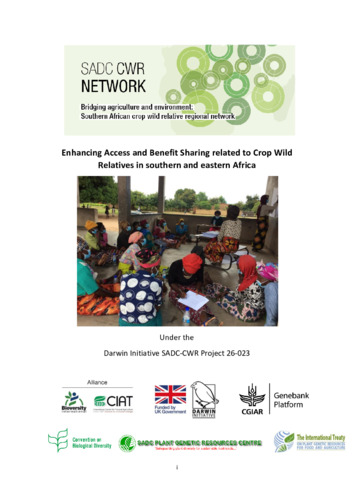Enhancing access and benefit sharing related to crop wild relatives in Southern and Eastern Africa
The Darwin Initiative funded project “Bridging Agriculture and Environment: The Southern African Crop Wild Relatives Network” aims at establishing strategic partnerships and networks of protected areas for Crop wild relatives’ (CWR) conservation and use. One of the key components of this project is “Access and Benefit Sharing” (ABS). As part of the project, a policy study was done with the aim of gathering experiences and perceptions on different access and benefit sharing regimes in partner countries and the institutional networks for ABS with the aim of harmonizing ABS across the region and establishing a network for sharing in situ genetic resources (of wild plant species) including CWRs. The study involved a review of existing policy frameworks and a survey of key actors in 22 countries in Eastern and Southern Africa.
This harmonization report presents findings of the study and is aimed at providing common information base for participants attending the Virtual Access and Benefit Sharing (ABS) Workshop. The study revealed that there are different policy regimes for ABS of CWRs that are governed by principles of both the Nagoya Protocol and the ITPGRFA. As such, it is important for countries to implement both international policy instruments in a mutually supportive manner. Few countries have harmonized their laws to implement both the ITPGRFA and Nagoya Protocol in a mutually inclusive manner, Madagascar presents such an example. Other countries have also established institutional coordination measures to simplify the process of accessing CWRs and in situ plant materials. The results of this paper have been discussed to stimulate discussion on knowledge gaps and next steps in ABS harmonization in the SADC region.

